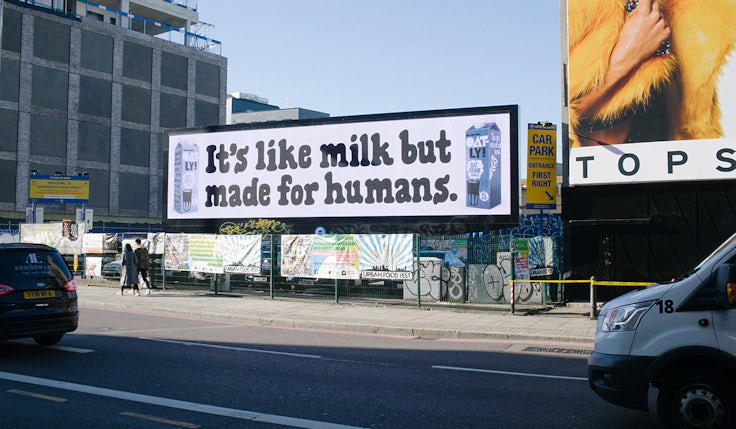Why Karma Cola uses ‘authentic storytelling’ to take on Coke: It means we aren’t just a product on a shelf
The founder of the organic soft drinks brand, which gives a portion of profits back to producers, says authentic storytelling means its product “isn’t just something on a shelf”, which is helping it take on the category leader.

Challenging established players comes down to authenticity and letting go of control, according to Simon Coley, the co-founder and creative director of soft drinks brand Karma Cola.
Speaking on a panel at the Festival of Marketing yesterday (10 October), he said sharing the brand’s story and purpose has given consumers something to think about, which is helping it compete with the likes of Coca-Cola.
He explained: “How we compete against very large competitors is to give consumers a story, so the end product isn’t just something on a shelf. It becomes a provocation to ask them to think about their ingredients.”
Through the Karma Cola Foundation, the brand ensures the communities that support the production of its products benefit from its sales.
“There is of course a tension in our business between keeping the altruistic endeavour we’re founded on in balance with our commercial requirement to make a profit. But it’s actually not so hard because that authentic story is commercial for us, because if we didn’t have it we would be like everyone else.”
Each variety of Karma Cola features a different character, such as Gingerella for ginger beer, which have developed a cult following with some consumers even getting tattoos of the artwork.
Coley explained: “Because of the way we have presented the characters of our products there is a whole affinity to them that we can’t control.
“The brand director in me sees the graphic designs we’ve created painted on walls by people and I think ‘oh dear the illustrator will be annoyed’ but the marketer in me thinks ‘this is fantastic’. If we’ve given someone the opportunity to own our creative themselves, tell a story for us, then that’s great. If we’re prepared to let go some of that control and make it a co-creative process then it creates an exciting opportunity for us.“
Coley said one of the biggest lessons he’s learnt around user-generated content is that it must be organic, though.
He added: “It’s just really hard to get. Instead we’ve realised we’ve just got to watch what comes back to us rather than force unnatural behaviour.”







